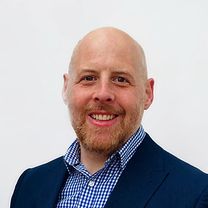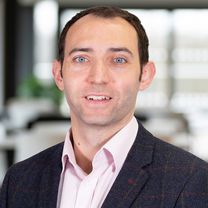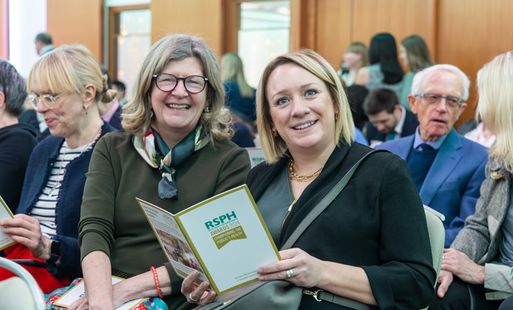The Unusual Suspects: Unlocking the Potential of the Wider Public Health Workforce
RSPH's landmark report calls for better support and recognition of the public health workforce.

At its heart, public health is about helping people and working with different communities to support them around health and the prevention of illness.
The public health workforce collectively work across sectors and areas nationwide to improve our health and wellbeing, prevent illness, ensure fewer people need the NHS and that we have a healthier and more productive workforce.
RSPH has been calling for more support and recognition of the wider public health workforce for nearly a decade. That's why we published The Unusual Suspects report exploring the potential of the wider public health workforce and the impact they have on the nation’s health.
The Unusual Suspects: at a glance
Key findings:
- 1.5 million people are actively engaged in supporting public health in their roles.
- 9 in 10 people said they want the government to support the public health workforce.
- 68% of the wider workforce said they consider the impact on public health when making decisions.
- 55% said they promote healthy living as part of their jobs.
Recommendations:
- A cross-sector national strategy to grow and support a comprehensive public health workforce that is that is fit for the future.
- The Wider Public Health Workforce needs to be properly resourced, upskilled and empowered to maximise their potential.
- The Wider Public Health Workforce need to be better recognised as contributing to public health and prevention.
- The Wider Public Health Workforce needs clearer routes into public health and ways to develop and be recognised for their expertise in public health.
Key statistics
of the wider public health workforce engage directly with the public
said they want a government plan to support the public health workforce
said public health has become more important to their work
Who are the public health workforce?
The public health workforce covers a huge array of people at differing levels of involvement, from epidemiologists and smoking cessation specialists to cleaning and hygiene operatives, from Directors of Public health and town and country planners to sports and fitness specialists and Allied Health Professionals (AHPs).
Wider Workforce
All staff engaged in or who want to engage in public health activities, who identify public health as being an important part of their role but are not employed within the core public health workforce.
The actively engaged wider workforce is up to 1.5 million people.
Core Practitioners
All staff engaged in public health activities who identify public health as being the primary part of their role. Those who spend a major part, or all of their time, in public health practice delivering public health.
This is around 36,000 people.
Core-Specialist
All staff engaged in public health activities who identify public health as being the primary part of their role and who are on the (GMC, UKPHR or GDC) specialist register.
This is around 1,300-1,500 people.
What does the public health workforce want?
Training and career opportunities
The public health workforce has told us they want more training and career opportunities including CPD, online learning, short courses, networking and conferences. RSPH has listened to the needs of the workforce and set up our workforce packages and pathways offer.
A Workforce Strategy
The public health workforce has made it clear that they need to be better supported and have more recognition of the important role they play. They told us that they want a workforce strategy that is joined up across the four nations.
Many of the building blocks for this exist and there is strong support across the public health community to do this. This strategy could help to develop whole systems solutions to some of the current workforce challenges and be a catalyst for improving the health of the nation, alongside building a clear and coherent approach to public health careers for all.








